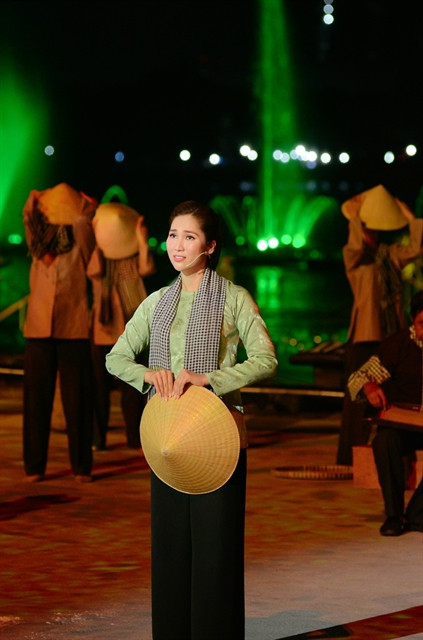 |
| TRADITIONAL MUSIC: Live performances to entertain tourists with several genres of traditional music such as cải lương (reformed opera), tài tử and vọng cổ (nostalgic songs) will be launched in HCM City. Photos courtesy of the theatre. |
The project will entertain tourists with several genres of traditional arts such as vọng cổ (nostalgia), cải lương (reformed opera), and tài tử, which is a music of the south which was recognised as an Intangible Cultural Heritage of Humanity by UNESCO in 2013.
Tài tử is a genre of chamber music, while the 100-year-old cải lương is a form of reformed opera, and vọng cổ focuses on nostalgic melodies.
The project will also include talks about the various art forms as well as the traditional instruments used, including the bầu (monochord zither), kìm (two-stringed guitar), cò (vertical violin with two strings), and tranh (16-chord zither).
The audience will get to meet the artists after the show and benefit from impromptu lessons on singing and playing the different instruments.
Cải lương plays written by Trần Hữu Trang, the region’s foremost artist of cải lương, will be highlighted.
They will include Đời Cô Lựu (Mrs. Lựu’s Life), a production by Trang first staged in the 1930s by cải lương pioneers Năm Châu, Phùng Há and Út Trà Ôn.
The play portrays Lựu, a Vietnamese woman, and her challenges and suffering under the feudal society in the south.
 |
| SPECIAL PROJECT: HCM City’s Trần Hữu Trang Theatre in co-operation with its partner, the city’s Department of Culture, Sports and Tourism, will launch a special art project offering traditional art forms to attract visitors. |
Trang was born in 1906 to a farming family in Mỹ Tho Province (now Tiền Giang).
He began his professional career in 1928, working for leading troupes in the south. In the 1930s, Trang was at the peak of his artistry and fame, trying to put his new ideas in serious plays featuring Southern culture and lifestyle.
After the August Revolution in 1945, Trang joined the revolution and worked in Sài Gòn-Chợ Lớn (now Hồ Chí Minh City). He was a member of the National Front for the Liberation of the South.
He created more than 30 works and all feature Southern characteristics. Most of them have been recognised as canonical cải lương and have been staged many times by different generations at home and abroad.
He died in 1966 in battle. His body has never been found. For his contributions, he was awarded the Hồ Chí Minh Prize by the Government in 1996.
Trần Hữu Trang Theatre is named after him.
“Our project targets visitors who love to discover local culture and lifestyle during their visits,” said Phan Quốc Kiệt, director of Trần Hữu Trang Theatre. “We hope to bring Southern theatre and music closer to visitors and help young people understand the role of traditional arts.”
The project is expected to begin in April.— VNS